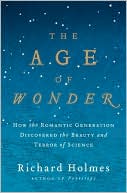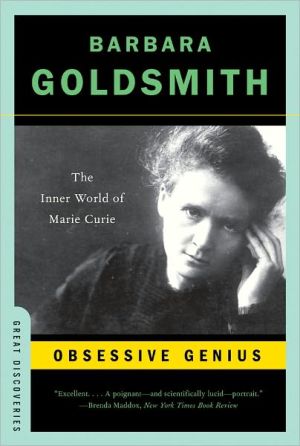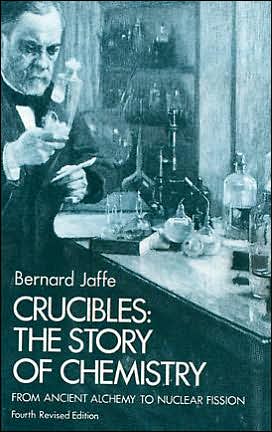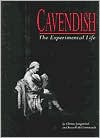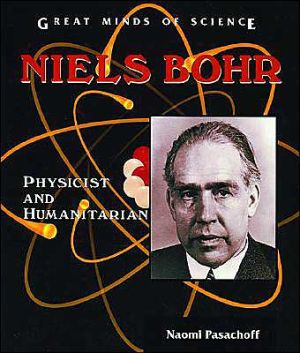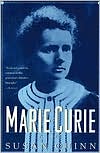This Man's Pill: Reflections on the 50th Birthday of the Pill
On October 15, 1951, in a small laboratory in Mexico City, one of the key episodes in 20th century social history occurred: the first synthesis of a steroid oral contraceptive--an event that triggered the development of the Pill. Carl Djerassi has been honored worldwide for that accomplishment, which ultimately changed the life of women and the nature of human reproduction in ways that were not then foreseeable. \ Now, on the 50th anniversary of this pivotal event, Djerassi weaves a...
Search in google:
On October 15, 1951, in a small laboratory in Mexico City, one of the key episodes in 20th century social history occurred: the first synthesis of a steroid oral contraceptive—an event that triggered the development of the Pill. Carl Djerassi has been honored worldwide for that accomplishment, which ultimately changed the life of women and the nature of human reproduction in ways that were not then foreseeable. Now, on the 50th anniversary of this pivotal event, Djerassi weaves a compelling personal narrative full of self-reflection and humor, illuminating the impact this invention has had on the world at large and on him personally. This Man's Pill presents a forcefully revisionist account of the early history of the Pill, debunking many of the journalistic and romantic accounts of its scientific origin. Djerassi does not shrink from exploring why we have no Pill for men or why Japan only approved the Pill in 1999 (together with Viagra). Emphasizing that development of the Pill occurred during the post-War period of technological euphoria, he believes that it could not be repeated in today's climate. Would the sexual revolution of the 1960s or the impending separation of sex ("in bed") and fertilization ("under the microscope") still have happened? Djerassi also credits the Pill with radically altering his life, allowing him to become one of the few American chemists to have a second career, that of a novelist and playwright. These talents are clearly evident in This Man's Pill, a superbly written and uniquely authoritative account of a discovery that changed the world. Publishers Weekly "Until 1969, I would have described myself as a `hard' scientist, the proudly macho adjective employed by chemists and other physical scientists to distinguish their work from the `soft,' fuzzy fields such as sociology or even psychology," writes Djerassi, whose historic synthesis of a steroid contraceptive in 1951 revolutionized human reproduction. In this learned memoir, he describes the turning point as the publication of his first public policy article in Science magazine, an event that he says marked the beginning of a life change attributable ultimately to the pill. The first part of this memoir is a well-reasoned apologetic on the pill's origins and its benefits to women, where Djerassi follows familiar debunkings: of fundamentalists, on the one hand, who regarded the pill as "a symbol, if not an agent, of what they perceived as a pervasive moral decline," and of feminists, on the other, who he says viewed the manmade contraceptive as the supreme gesture of patriarchy. The balance of this book, however, explores how the pill altered the rules of the author's own life, raising his awareness of "the social consequences arising from scientific and technological developments" and leading him down unexpected creative avenues; Djerassi, now in his late 70s and an emeritus professor of chemistry at Stanford, has since become a prolific playwright and author of five novels and a book of poetry. His meditations on "science-in-theater" and other aspects of the writing life (along with frequent quotations from Djerassi's favorite authors) are sprinkled through the book, giving this winning, disorganized set of reflections depth and heart. (Oct. 15) Forecast: While few readers are likely toshare Djerassi's precise combination of interests, this book should draw the attention of the parents of boomers, and the countercultural boomers themselves and it could break out on reproductive interest alone. Djerassi's play, An Immaculate Misconception, dealing with current fertility issues, opens in New York this fall. Copyright 1999 Cahners Business Information.
1An exaltation of thirty: Murasaki and company12Genealogy and birth of the Pill113Bitter Pills634The view from Tokyo985Sex and immortality1146From the Pill to the PC1377Science-in-fiction is not science fiction. Is it autobiography?1518Behind the scrim of fiction1689The softer chemist18810The Pill and Paul Klee21411Science on stage24412What if?280
\ Publishers Weekly"Until 1969, I would have described myself as a `hard' scientist, the proudly macho adjective employed by chemists and other physical scientists to distinguish their work from the `soft,' fuzzy fields such as sociology or even psychology," writes Djerassi, whose historic synthesis of a steroid contraceptive in 1951 revolutionized human reproduction. In this learned memoir, he describes the turning point as the publication of his first public policy article in Science magazine, an event that he says marked the beginning of a life change attributable ultimately to the pill. The first part of this memoir is a well-reasoned apologetic on the pill's origins and its benefits to women, where Djerassi follows familiar debunkings: of fundamentalists, on the one hand, who regarded the pill as "a symbol, if not an agent, of what they perceived as a pervasive moral decline," and of feminists, on the other, who he says viewed the manmade contraceptive as the supreme gesture of patriarchy. The balance of this book, however, explores how the pill altered the rules of the author's own life, raising his awareness of "the social consequences arising from scientific and technological developments" and leading him down unexpected creative avenues; Djerassi, now in his late 70s and an emeritus professor of chemistry at Stanford, has since become a prolific playwright and author of five novels and a book of poetry. His meditations on "science-in-theater" and other aspects of the writing life (along with frequent quotations from Djerassi's favorite authors) are sprinkled through the book, giving this winning, disorganized set of reflections depth and heart. (Oct. 15) Forecast: While few readers are likely toshare Djerassi's precise combination of interests, this book should draw the attention of the parents of boomers, and the countercultural boomers themselves and it could break out on reproductive interest alone. Djerassi's play, An Immaculate Misconception, dealing with current fertility issues, opens in New York this fall. Copyright 1999 Cahners Business Information.\ \ \ \ \ Library JournalAs a genre, the superstar scientist's memoir tends to be either very bad or very good. At best, it humanizes the person and offers perspective on the work. At worst, it smothers the reader with arcane details and reeks of arrogance. Djerassi, a true polymath best known as the inventor of the birth control pill, is too skilled a writer and broad a thinker to fall victim to the latter tendency. His new book is artful, thoughtful, and entertainingly iconoclastic. Still, for those familiar with his work, it covers much old territory. For example, in 1992 he published an autobiography (The Pill, Pygmy Chimps, and Degas' Horse), and 1994's From the Lab into the World addressed many of his thoughts on the social impacts of the Pill. The first five essays of this new book deal with the development and distribution of the Pill, most of which Djerassi has discussed in prior titles. The most interesting essays here are those in which he expounds upon his forays into literature and the arts a later life passion that he credits to perspective gained as a result of what he had experienced because of the Pill. In all, a worthy if not entirely fresh memoir. Gregg Sapp, Science Lib., SUNY at Albany Copyright 2001 Cahners Business Information.\ \ \ Kirkus ReviewsA memoir of the birth control pill's monumental impact on its creator's life, as well as a capsule history of the Pill's development-and a response to those who blame it for various current social woes. Djerassi (Chemistry/Stanford), whose laboratory at Syntex in Mexico City synthesized the steroid that later became the first oral contraceptive, clarifies the contributions of numerous other scientists to the birth of the Pill, calling himself its mother, Massachusetts-based biologist Gregory Pincus its father, and Harvard endocrinologist John Rock its metaphorical obstetrician. Having settled questions about the Pill's ancestry, the author turns to the issue of its impact. He looks at the Pill's acceptance around the world and raises some interesting what-if-it-hadn't-been-invented questions, but the heart of the matter is how the oral contraceptive changed Djerassi's own life. It brought him out of the chemistry lab and turned him into a novelist, poet, playwright, and innovative educator; in addition, Syntex stock options made him a wealthy man, enabling him to become an art collector and patron of the arts. Writing two public policy articles on the Pill convinced him that politics, not science, would shape birth control's future, and he consequently developed courses bridging science and the humanities at Stanford. What he refers to as "this softening of my scientific persona" led Djerassi to seek a wider public for his views, and he describes his subsequent literary career in loving detail, illustrating his account with examples from his work. An autobiographical poem serves as the book's abstract (scientific papers have one, so why not this?), and the text is laden with excerptsfrom his poems, short stories, "science-in-fiction" novels (NO, 1998, etc.) and "science-in-theater" dramas. Djerassi clearly takes great pride in his accomplishments, not least the founding of a thriving artists' colony near Palo Alto. Knowingly and gloriously boastful, but not nearly as entertaining as Djerassi's earlier memoir, The Pill, Pygmy Chimps, and Degas' Horse (1992).\ \


